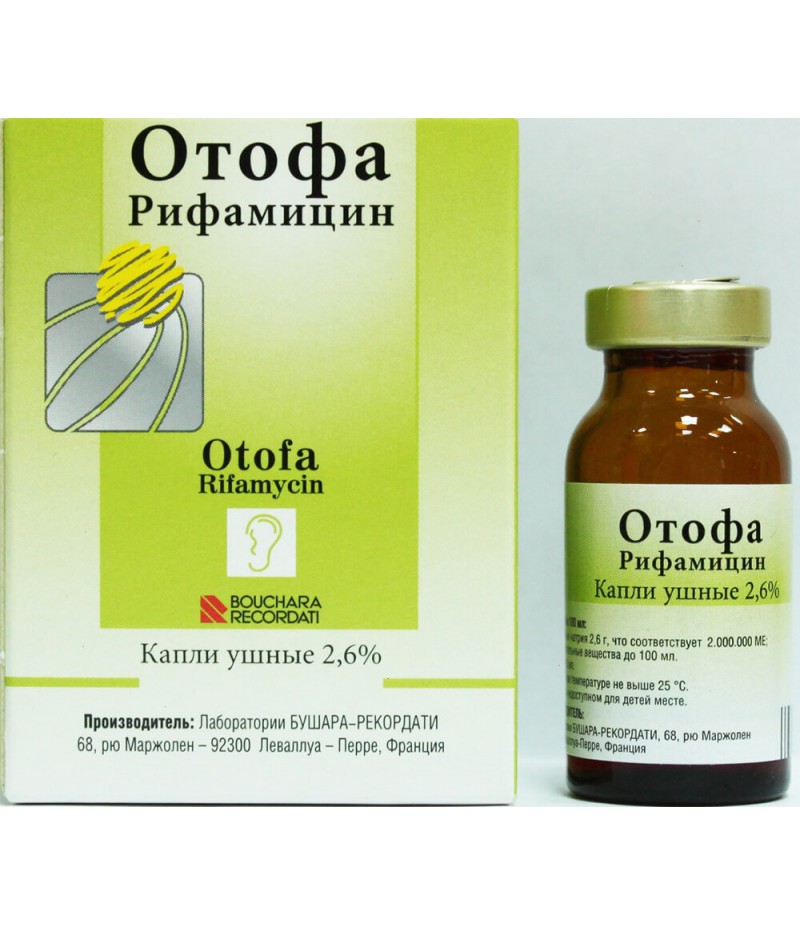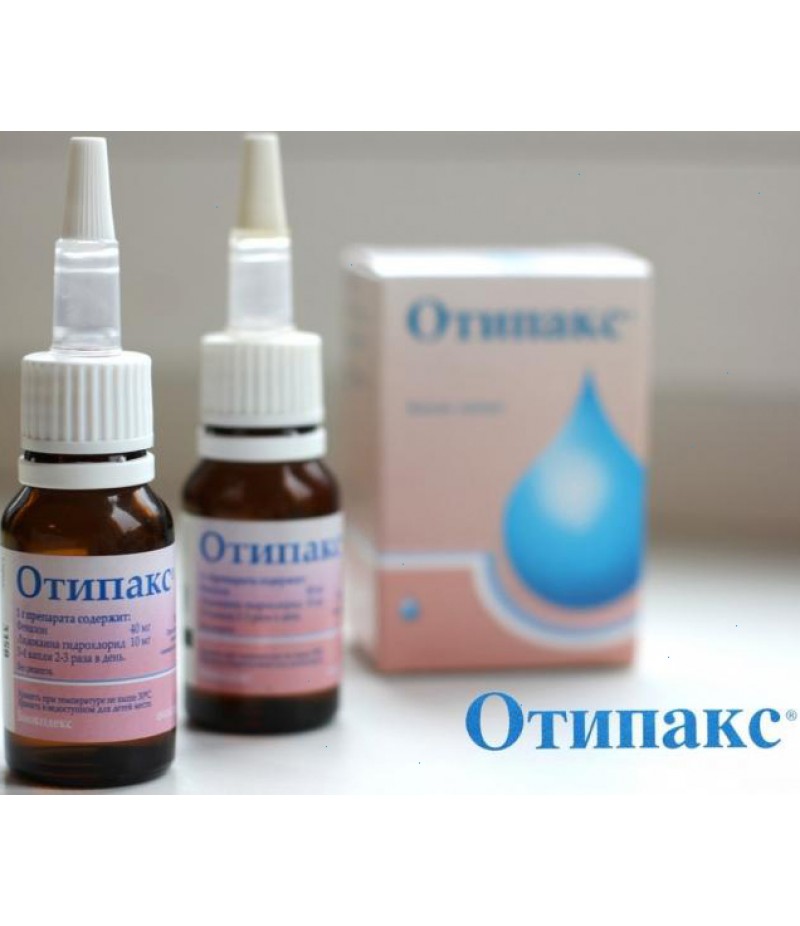Otofa ear drops 10ml
- $11.52
- 3 or more $10.99
- Availability:In Stock
Otofa instruction for useYou can buy Otofa hereCompositionThe composition of 100 ml of the drug contains 2.6 grams of rifamycin sodium.Additional substances: Macrogol 400, edetate disodium, lithium hydroxide, potassium disulphite,..
Tags: drops
Otofa instruction for use
You can buy Otofa here
Composition
The composition of 100 ml of the drug contains 2.6 grams of rifamycin sodium.
Additional substances: Macrogol 400, edetate disodium, lithium hydroxide, potassium disulphite, water, ascorbic acid.
Form of issue
Ear-drops of Otofa 2.6% are a clear orange solution. 10 ml of solution in a glass vial - 1 vial with a dosage pipette in a cardboard box.
pharmachologic effect
Antibacterial, bactericidal action.
Pharmacodynamics and pharmacokinetics
Pharmacodynamics
Antibacterial drug, refers to rifamycins for topical use in otorhinolaryngology.
Rifamycin has an action mechanism associated with the formation of a complex with RNA polymerase, which prevents the development of bacteria. Acts on the vast majority of gram-negative and gram-positive microorganisms that cause diseases of the external and middle ear of the infectious-inflammatory nature.
Pharmacokinetics
The study of pharmacokinetic parameters was not carried out because of small systemic absorption of the agent.
Indications for use
Otitis acute and chronic type:
acute forms of otitis media (including otitis with violation of the integrity of the tympanic membrane);
otitis externa;
condition after surgery on the middle ear;
chronic forms of otitis media.
Contraindications
Allergy to the components of the drug.
Side effects
Skin manifestations of allergic reactions are not excluded.
Instructions for Use Ophthalmic Acids (Method and Dosage)
Instruction on the preparation indicates that it is necessary to instill drops in the ears, but before using them, you should warm the bottle in your hand to avoid unwanted sensations when a cooled drop enters the ear.
Otofa drops, instructions for use
Adults are prescribed to dig in 5 drops in the ear three times a day or pour ears of otophus in the ear for 2-3 minutes twice a day.
The standard treatment duration is one week.
Overdose
Due to poor absorption in the systemic blood flow, an overdose of this agent is unlikely.
Interaction
No significant clinical pharmacological interaction between the drug Otofa and other drugs has been detected.
Storage conditions
Store at room temperature. Keep away from children.
Shelf life - Three years.
special instructions
The drug is able to stain the tympanic membrane in pink (observed with otoscopy).
It is necessary to avoid getting the drug on clothes, because of the possible appearance of hard-to-remove drops.
Children
In this category of patients, the drug is instilled by 3 drops in the ear three times a day, or it is poured in for 2-3 minutes in the ear twice a day.
In pregnancy and lactation
Strictly controlled trials of drug safety in these patient groups were not conducted. Because of the small systemic absorption of the drug, it is acceptable to take it during pregnancy and lactation, if the appointment was made by a doctor.
Reviews about Otofa
Reviews about Otofa for children are well characterized by these ear drops. Reviews of adults on the drug also convincingly indicate its ability to quickly and effectively deal with various types of otitis.
Otofa or Otipax - which is better?
Otypaks and Otofa belong to different groups of drugs with completely different composition. If the former is mainly used for pain relief and relief of edema in uncomplicated otitis, while the latter is an antibacterial pathogenetic agent for treating many types of otitis media, but does not possess the above-mentioned properties of Otipax. The decision on the appointment of a particular drug should be decided by the attending physician.


